From touring DJ to producer/engineer to film score composer, there’s little in the business that Recording Connection mentor
Patrick Heaney hasn’t done. Starting at an early age playing drums and recording in his attic, Patrick went on to tour as an electronic musician under the moniker Shark Attack, sharing the stage with the likes of MSTRKRFT and Deadmau5 before “settling down” in his twenties to build his first studio, which was designed by none other than Phil Spector. As a producer/engineer, Patrick has worked with the likes of Tiesto, Franz Ferdinand, Passion Pit, Icona Pop, Cage the Elephant and a host of others.
Today, Patrick owns and operates
Phaser Control Recording Studio in San Diego, CA, where he is glad to pass on his knowledge to Recording Connection apprentices. In a recent conversation with RRFC, Patrick bragged on a few of his students and offered some great advice on topics like finding the right sound and persevering through the difficult early stages of a new career. The best nuggets from that conversation are shared below.
ON HOW HE FOUND HIS WAY INTO MUSIC AND RECORDING:
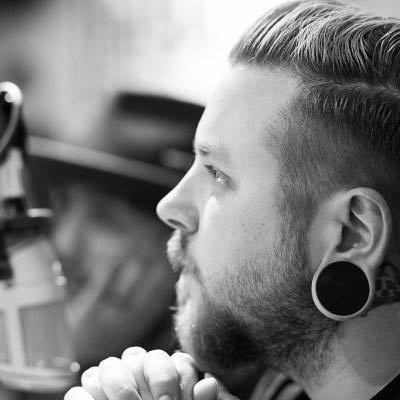
RC mentor Patrick Heaney
“I have been playing drums since I was five, between four and five I started playing drums. Then I actually wanted to keep on playing and start recording. When I was 16, I got my first Pro Tools rig…I started recording up in my attic with my drums and I got a, I think it was like groove tube microphone, something cheap and I just started recording guitar, and my brother was a guitarist so we’d just play and keep on recording…I think that looking back on that, I obviously care so much more about sound now. But some of the coolest stuff I’ve ever done does have squeaks and creaks and it gives it more of a feel to the music.”
ON HOW HE WENT FROM BEING A LIVE DJ TO OWNING A STUDIO:
“I’d been producing music for quite some time and, I decided to try my hand . . . I was on tour with this band…I told the guy who writes all the music for them, I was like ‘All these DJ’s at all these places we’re playing are terrible.’ And he says, ‘Do you think you can do a better job?’ I go, ‘Yeah, I could do a better job.’… I started DJ’ing with them and playing different music, and I was like ‘You know what? A lot of this electronic music I think I can do better.’ I was 18, 19 at the time with a fake ID going into bars and DJ’ing, and I started making some electronic music and it kind of took off from there. And instead of spending all the money that I made touring—we toured with MSTRKRFT, Bloody Beetroots, Deadmau5— … I knew that touring constantly wasn’t for me, and I really just wanted to be the kind of guy who is behind making everything sound perfect, sound really good. So I opened my first studio when I was just 21 or 22, and from there it’s just kind gone uphill.”
ON THE STRUGGLES INVOLVED WITH BUILDING A CLIENTELE:
“When you first start out, it’s tough to prove that you can [do it], especially if you’re going for electronic music. It’s tough to get clients in there that are musicians and they go, “This guy doesn’t play music, he just writes electronic music,” [when] really I have been playing drums since I was five, I have played guitar, and bass, and cello, violin, and piano all my life. So to actually prove that I can do all this–…you just kind of have to give in to people that take a risk and come in, and then it starts to blossom from there. You can’t [say], ‘I’m going to charge $600 a day.’ You have to build up your own resume . . . you’ll be hurting for a while, but it’s worth it if you have a really good product. And my main thing was to not let anything I wasn’t extremely happy with leave the studio. So if it took giving people discounts to get them in there and then making a really good sounding album, it all comes around.”
STUFF HE’S BEEN WORKING ON:
“I just finished my [own] album…I play everything on it and it’s like a really mellow ambient kind of like explosions in the sky mixed with M83 type stuff. It’s like half electronic, then half all real instruments kind of mixed together…I’m shopping it right now, but just literally got back from mastering on Monday.”
ON TEACHING HIS STUDENTS HOW TO FIND THE RIGHT SOUND:
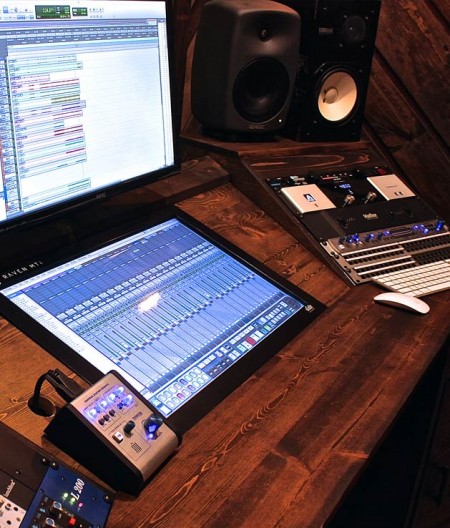
Control Room in Phaser Control Recording Studio
“I always tell my students and I tell anybody that I meet, you kind have to pair your singer with their microphone and their mic pre because everybody is different…There’s no set template for exactly like—when someone comes in, you’re not going to go ‘Okay this is my vocal mic that I’m going to use every single time.’ It just doesn’t work that way. Same thing with drums; there are no set templates of what’s going to sound best on everything. You can have a rough idea, but I tell all students that you really got to learn your microphones really well, because if somebody has a very rusty voice you’re not going to pull out the crystal clear beautiful microphone that you would for a pop singer…Taking the time to really learn and understand what style they want and what they want to sound like is . . .it has a lot to do with how you’re going to get clients…All my students they’re amazed when . . . one of the lessons when we get to microphones, I’ll set up a guitar amp and I’ll put 15 or 20 different mics on that guitar amp and have them go through and listen to each one. And they’re absolutely floored that these microphones sound so different with the exact same guitar. Everything is the exact same, but they sound insanely different.”
ON THE PROGRESS OF SOME OF HIS KEY STUDENTS:
“It’s absolutely crazy to watch how fast they progress. I just had Philip [Robledo], he’s about to graduate probably next week. He had no idea what different mics did when he [first] came in, and he ran an entire session by himself, and mixed the entire thing by himself, and mastered the entire thing by himself. And in the middle of mixing or the middle of mic’ing up stuff, I’d be thinking, ‘Is he going to correct that?’ And he would listen to it once, walk right out, correct it…He now knows all these microphones like the back of his hand. It’s pretty amazing how much he’s learned in the short amount of time…I was extremely proud when he could work that quick and could hear all that stuff when he had no idea about any of this stuff when he first walked in.”
“Kemal Erdem…He just graduated from SCSU to be a mechanical engineer and realized that that was a boring field. He’s always wanted to produce music and never knew how to actually do it, and the second we started working , he’s like ‘I want it to be like this,’ and I was like ‘Alright. Let’s take it step by step about how you’re going to get that sound.’ I think teaching how simplifies the work …They think it’s going to be so hard to get this sound and you teach them how they work, and then they go ‘Oh sh**. This is actually pretty easy.’… Colin Leske is doing some crazy funk stuff: he’s doing the producer class and the master’s class…He comes to a lot of sessions too. He’s like a big sponge, and so it’s always cool working with him. Same with Joe Cronin, he’s on week eight and he sits down in front of Pro Tools, he had no idea how to even get into Pro Tools a couple of weeks ago, but he’s been in so many sessions that he can jump on wherever he is. It’s crazy how fast these kids can learn.”
ON WHAT HE LOOKS FOR IN HIS APPRENTICES:
“I don’t want someone who wants to do the least amount of work possible. A lot of the guys that I end up choosing who want to do audio, they’re in here for every session and they’ll stick around for eight hours. Sometimes they’ll come in early, sometimes they’ll stay late and they’ll be here for nine [or] ten hours, and some of them are being able to run sessions by week eight, week nine because they’re in here so much. And I always tell them I move quick. When we’re in sessions, don’t ask questions, just sit back and watch, but you’re not going to learn by me just talking and talking and talking and telling you about it. You’re going to learn by setting up all these things and it’s going to be trial and error. ‘Cause there’s no right way to do it, but if you can hear that it doesn’t sound right, then I can explain to you how to correct it.”

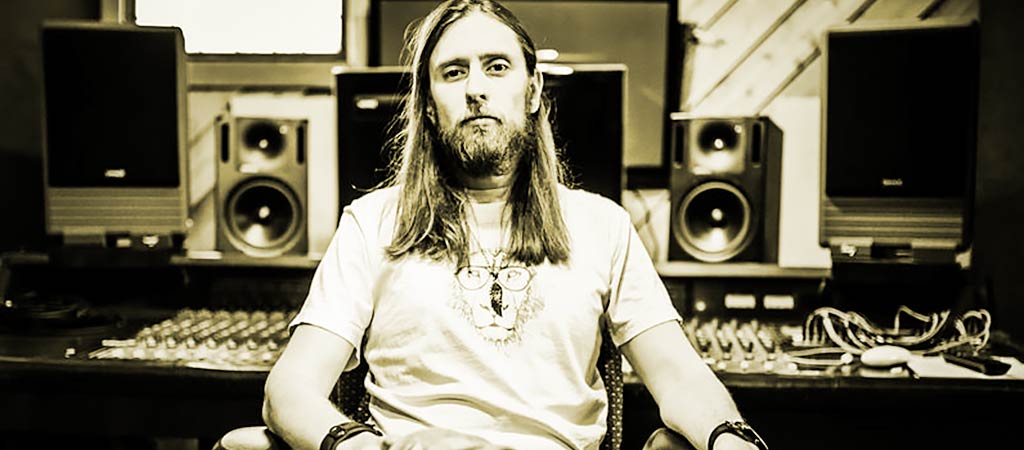
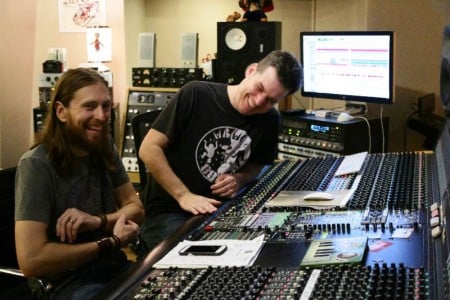
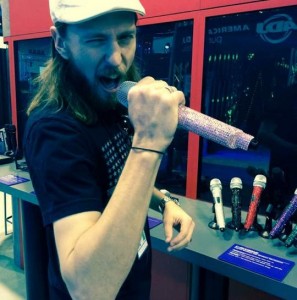
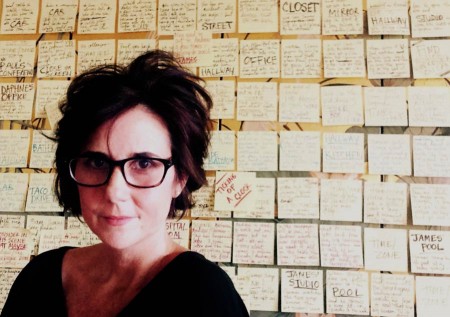
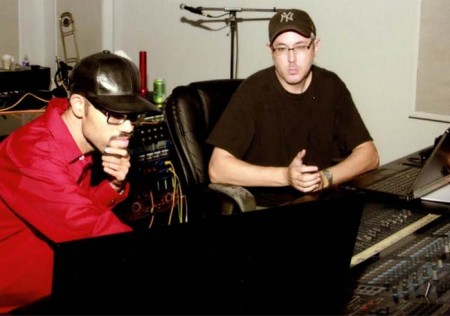
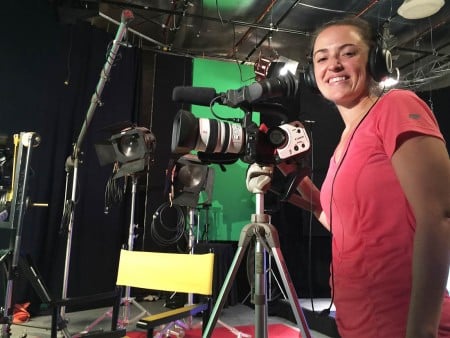



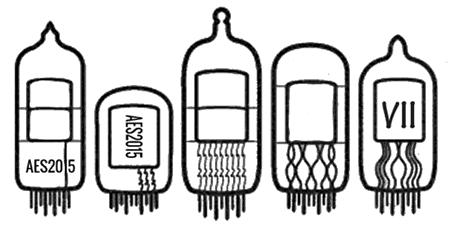 Recording Connection is proud to sponsor the 7th annual Afterglow which takes place every year following the AES Convention. This year’s Afterglow takes place on October 31st at the gorgeous, state-of-the-art DiMenna Center for Classical Music, just steps away from the convention.
AES Afterglow will be a masquerade-themed event drawing on influences from Motown and the golden age of recording. Attendees are strongly encouraged to dress in black and white. Masquerade masks will be given out at the door. RSVP here.
This year’s Afterglow is presented by Vintage King and AES (Audio Engineering Society). Recording Connection is honored to join sponsors Focal Press, Routledge Taylor & Francis Group, Gearslutz, Barefoot Sound, AVID, Slate Digital, Sonic Scoop, Genelec, Neve, Focusrite and Audionamix.
Recording Connection is proud to sponsor the 7th annual Afterglow which takes place every year following the AES Convention. This year’s Afterglow takes place on October 31st at the gorgeous, state-of-the-art DiMenna Center for Classical Music, just steps away from the convention.
AES Afterglow will be a masquerade-themed event drawing on influences from Motown and the golden age of recording. Attendees are strongly encouraged to dress in black and white. Masquerade masks will be given out at the door. RSVP here.
This year’s Afterglow is presented by Vintage King and AES (Audio Engineering Society). Recording Connection is honored to join sponsors Focal Press, Routledge Taylor & Francis Group, Gearslutz, Barefoot Sound, AVID, Slate Digital, Sonic Scoop, Genelec, Neve, Focusrite and Audionamix.



